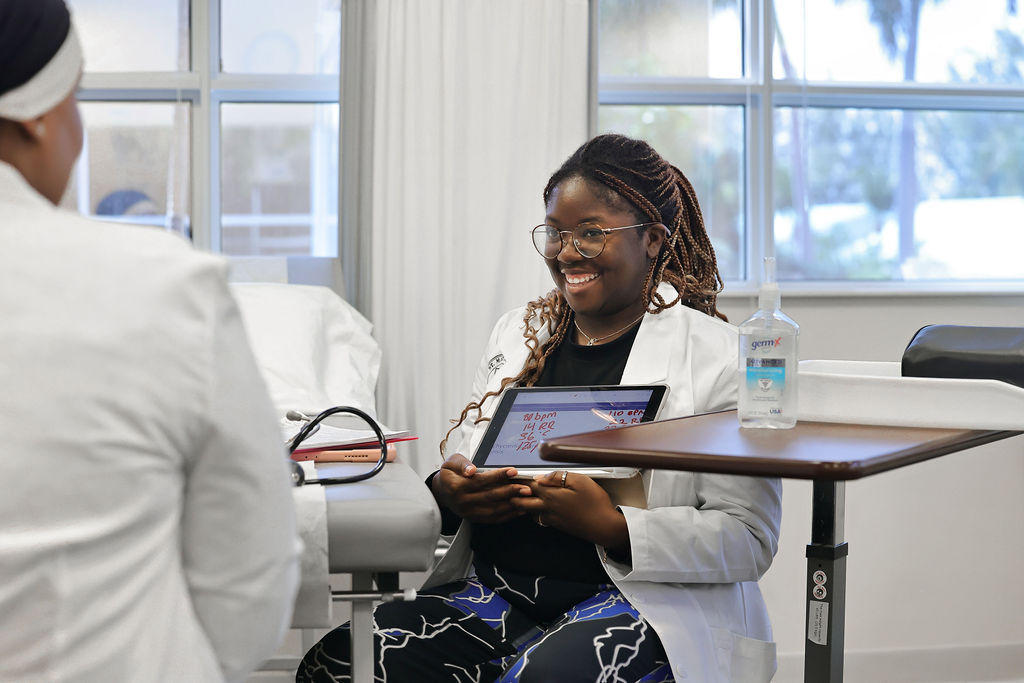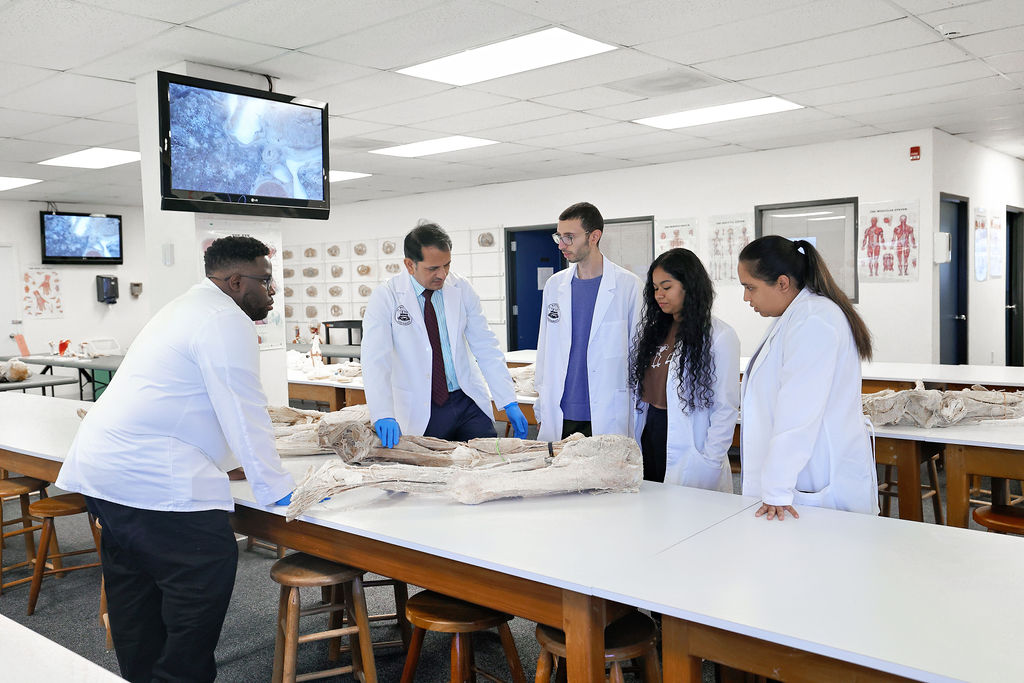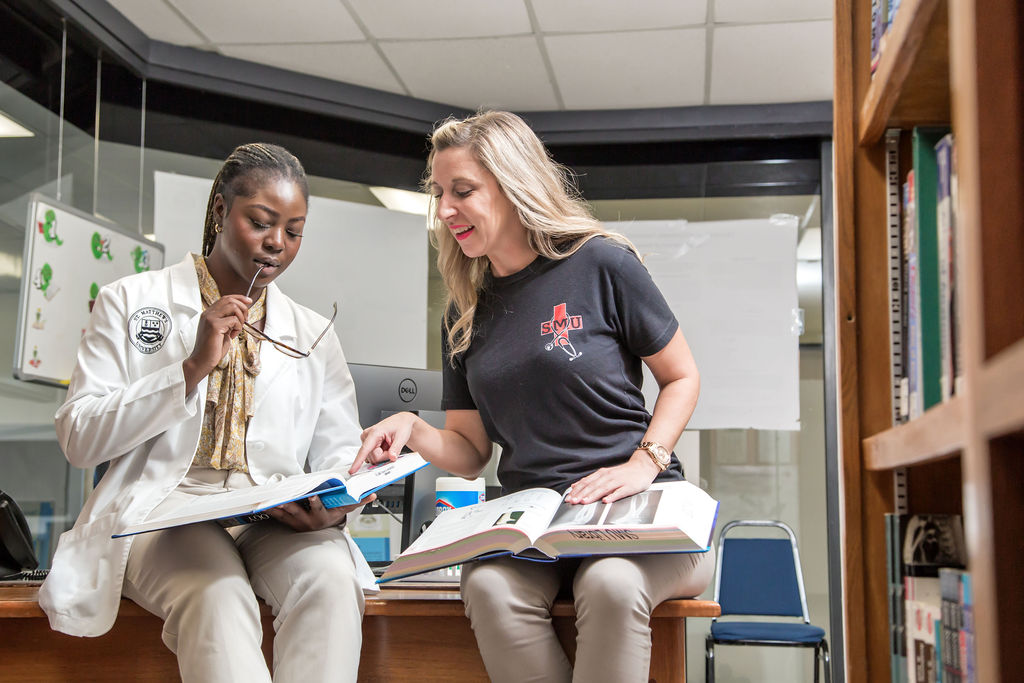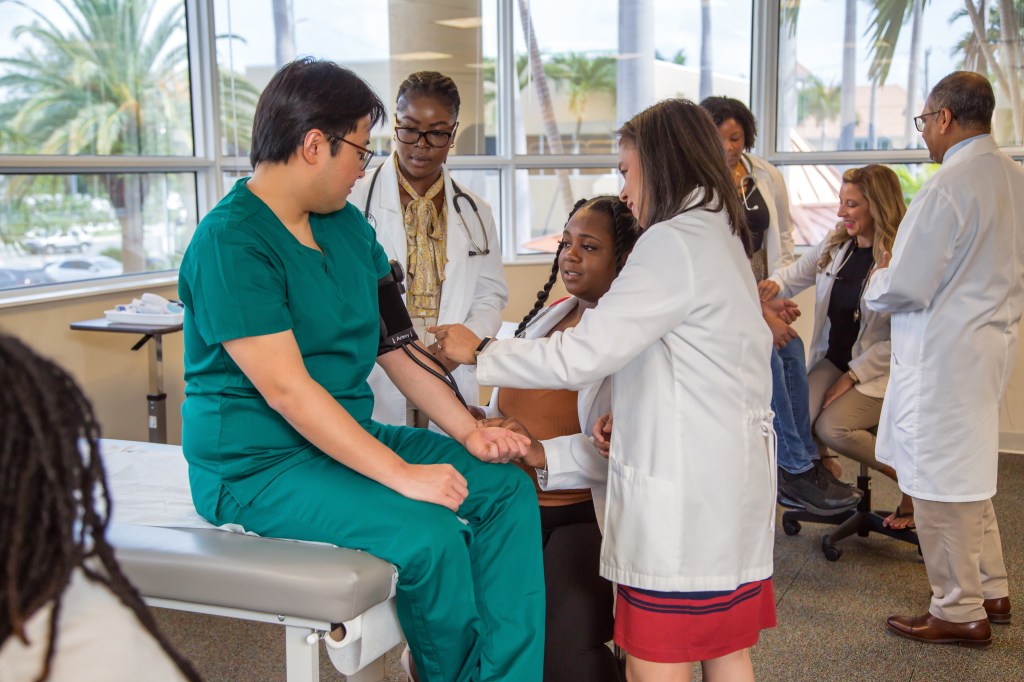
5 Things I Wish I Knew Before Becoming a Med Student
Receive insights and tips for your medical school journey.
Deciding to study medicine takes a lot of thought, research and commitment to the long-term goal of becoming a practicing physician.
A Doctor of Medicine (MD) program is more challenging than many other programs, and you shouldn’t underestimate the path to becoming a doctor. Getting accepted into medical school is the first step in a long journey, where you’ll inevitably encounter surprises and challenges to overcome.
To help you out, we’ve listed five things to know before becoming a medical student, including med school essentials and tips for aspiring doctors.
5 Things Every Pre-Med Should Know Before Going to Medical School
The number one question every student has before pursuing the study of medicine is “how hard is medical school?” We all know that MD programs are notoriously demanding and require preparation. However, with hard work and dedication, you can fulfill your potential and thrive in a rigorous MD program.
Although preparation is essential and goes a long way for medical students, it is likely you’ll still have to navigate a variety of obstacles, including academic and personal challenges. That’s why we’ve put together five things students should think about and implement before beginning an MD program, which will set you on the path to success.
1. Create a detailed schedule
A consistent and flexible schedule is essential for medical students.
An MD program is full of content from day one, so students must create a schedule that supports a heavy workload. The first two years of medical school are predominantly theory-based and require students to retain substantial knowledge to apply in course examinations, required tests like the USMLE and eventually in clinical rotations.
Understanding your learning style is key to creating an effective schedule tailored to your study habits. Some students are visual learners, while others prefer to absorb information through reading and writing. Depending on your learning style, you may also retain information quickly or need more time to immerse yourself in the various concepts. This all makes it crucial to prioritize your learning style when creating a schedule.
Despite the emphasis on studies, medical students must also spend time away from their studies and embed time for personal commitments and socializing into their schedules. This ensures students maintain a healthy work-life balance, which prevents burnout and a loss of motivation.
2. Prepare for exams from day one
One of the main things to know before medical school is that it’s never too early to prepare for the United States Medical Licensing Examinations (USMLE).
While preparing for medical school, students will learn that the USMLE Step 1 exam is one of the most important steps during an MD program and is essential for residency placements. Preparing for the licensing exams as soon as possible enables students to build a foundation of knowledge before the exam period. Preparing for the USMLE exams also shows you how to study as a medical student and teaches you good study habits, which are valuable throughout the MD program.
3. Consider your specialty
Internal medicine, psychiatry and general surgery are just three among many specialties that medical students can pursue. So, how do you know what specialty to choose?
Some students pursue an MD program with a set career plan and know the path to practice their chosen medical specialty before attending a single lecture. However, most students have a passion for medicine and helping people rather than a specific field of medicine in mind when they begin an MD program. Importantly, even for those who have a definite goal in mind, it is important to keep an open mind and not focus all your efforts on one subject.
As you progress through medical school, you’ll begin to discover that you enjoy certain fields of medical studies more than others, and that your aptitudes align well with certain specialties. The main part of medical school that will guide your choice though is the clinical rotations portion (Semesters 6-10). At St. Matthew’s University, this is when students cycle through the core clerkships curriculum (Internal Medicine, Surgery, Pediatrics, OB/GYN and Psychiatry) and the electives curriculum at school-affiliated hospitals, clinics and medical centers in the U.S. and Canada. These in-person treatment and care opportunities will give you a great sense of what you want to specialize in.
4. Get some medical experience
Whether it’s direct observation or voluntary work in a hospice, gaining medical experience before pursuing an MD program is a great way to get insight into various aspects of medicine.
Experiencing the medical field while preparing for medical school is also a valuable way to understand the fast-paced environment of healthcare. Students will get hands-on experience, which provides an overall understanding of how healthcare systems operate day-to-day.
Gaining medical experience also provides exposure to medical professionals, enabling students to grow their network and learn from experienced doctors. While developing essential skills, including communication, problem-solving and other interpersonal attributes, students can also identify areas of interest in the medical field to refine their career goals before studying medicine.
5. Ask for help when you need it
One of the most important things to know before medical school is that help is there when you need it.
Pursuing an MD program can feel like a lonely pursuit at times, with long study days, solo revision sessions and a towering schedule. However, it is essential to ask for help from faculty, student service administrators and peers if you are feeling overwhelmed, finding a topic confusing or struggling to keep pace.
There is no weakness in asking for help, as your support system is integral to your success as a medical student. Learning to ask for help is an essential skill that prepares you for a career as a doctor, where asking for advice from fellow medical professionals is standard practice.
Due to the competitive medical school acceptance rate, it can be easy to view your classmates as competition. However, it is important to shift your mindset and ask your peers for help if needed, as everyone is working towards the same thing and can help in various ways.



How to Prepare for Medical School Interviews
Now that you are aware of the things to know before beginning medical school, it’s important to prepare for the medical school admissions interview that will showcase why you deserve a place in a competitive MD program.
Here are our top tips for preparing for medical school interviews:
Research – The study of medicine requires research, so developing research skills during the interview process is great preparation for medical school. Find out everything you can about the medical school and its MD program and align your goals and professional aspirations. Research prepares you for the interview and highlights if the school is right for you.
Practice common interview questions – Medical school interviews require students to answer a wide range of questions, including more complex questions than “how hard is medical school?” Students should practice common interview questions related to their motivation to study medicine, strengths and weaknesses, career aspirations, and medical knowledge.
Develop interview manner through mock interviews – While practicing interview questions, students should try to develop their interview manner to showcase their confidence and determination to study medicine. This can be achieved by practicing eye contact and self-presentation during mock interviews.
Stay updated on current healthcare trends – During medical school interviews, it is essential to express your passion for the medical field. One way to do this is to showcase your knowledge of current trends and the latest medical news, such as a groundbreaking new drug. The ability to explain how trends affect the healthcare industry will impress interviewers and showcase your understanding of the wider contexts of local and international healthcare.
Utilize your network – Prior to the interview stage, reaching out to your connections in the medical field for any insights and things to know before beginning medical school can be valuable. This allows you to ask about the interview format or any questions they answered during medical school interviews.
The St. Matthew’s University School of Medicine MD Program
It can be hard to know how to prepare for medical school. Utilizing your network, creating a well-planned schedule and seeking medical experience before starting the MD program are some of the things that can help prepare you for a successful medical school experience.
If you’re ready to choose an MD program from an internationally accredited medical school, discover St. Matthew’s University School of Medicine (SMUSOM), located on the island of Grand Cayman.
SMUSOM’s Doctor of Medicine (MD) Program parallels the training received at U.S. and Canadian medical schools, offering rigorous medical education and hands-on training, individualized support from dedicated faculty members and extensive student services for aspiring medical doctors. The eight-month Pre-Medical Master’s Program, delivered through Medical University of the Americas (our fellow GUS Medical and Veterinary Schools institution), is also a great option for those exploring a future in medicine.
No matter what type of practicing medical doctor you want to become, SMUSOM’s MD program can be your first step to fulfilling your professional ambitions.
Learn more from one of our recent alums here:
FAQs About Medical School
To get into medical school, students generally need to meet multiple requirements, including:
- Successful prerequisite coursework
- Two letters of recommendation
- Official academic transcript(s)
- Admissions interview
- English language proficiency*
- Personal statement
- Medical College Admission Test (MCAT)**
- Patient care experience
*Applicants whose principal language is not English may be required to take the Test of English as a Foreign Language (TOEFL).
**MCAT is required for all applicants who are citizens, nationals, or permanent residents of the United States. Canadian and international students are not required to submit MCAT scores, although it is recommended to still do so.
If you have a passion for medicine and enjoy helping people, medical school can be an extremely rewarding experience despite the demands of the MD program. Going to medical school requires you to dedicate a great deal of time and energy, and years of your life to the study of medicine, so you must carefully consider your long-term goals before pursuing an MD program from an accredited medical school like St. Matthew’s University School of Medicine. But if you’re committed to care, it can be the right choice for you!
There are many factors that determine a student’s chances of being accepted into medical school. Firstly, students must meet all the pre-requisite coursework and admissions requirements for an MD program. Secondly, students can increase their chances by having a high Grade Point Average (GPA), scoring well on the MCAT, having over 50 hours of direct patient care experience, and submitting a strong personal statement and impactful letters of recommendation.
Medical school requires certain characteristics, including a strong work ethic and organizational skills, due to the challenging workload. If you have strong communication, teamwork and problem-solving skills, as well as a flexible mindset to overcome various challenges, medical school can be a good fit.
Get in touch for more information